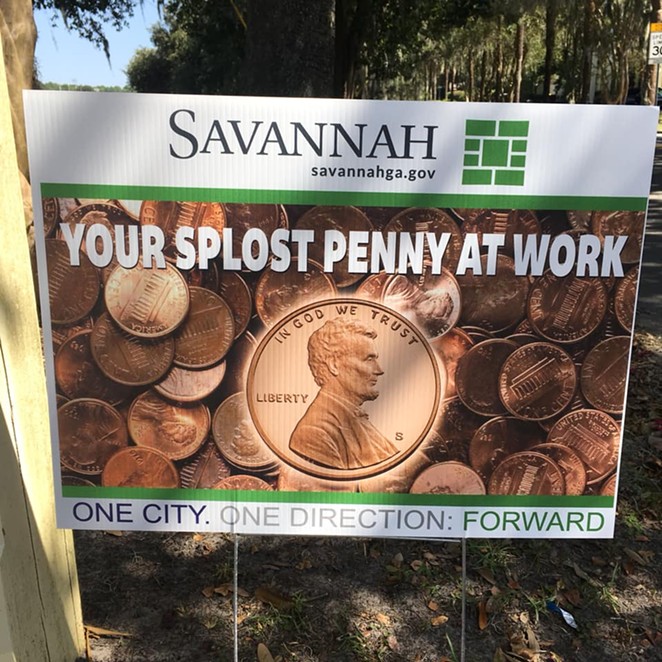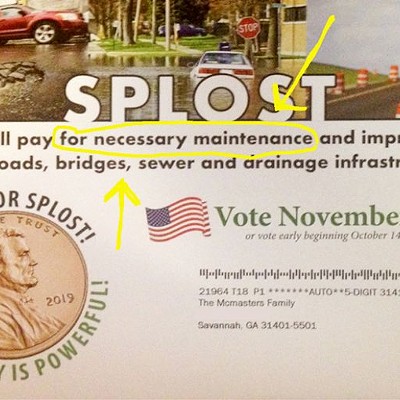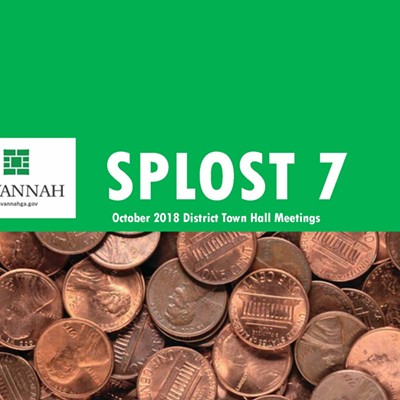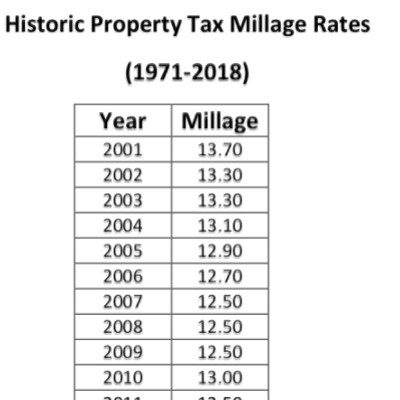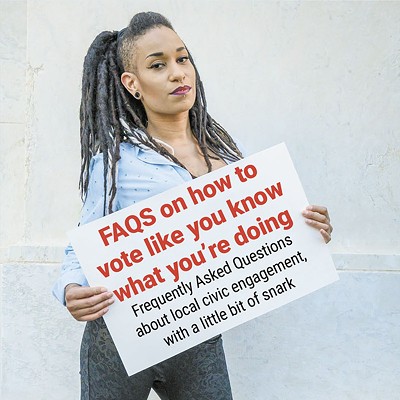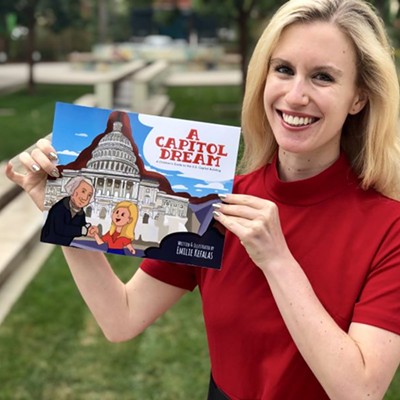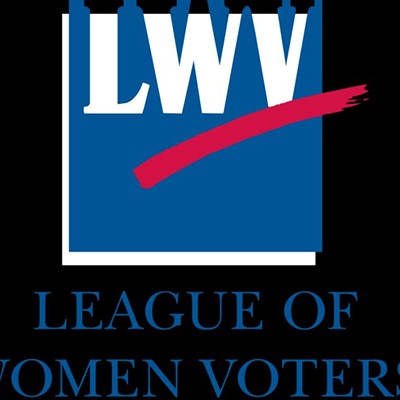YOU MIGHT have seen the signs popping up suddenly like mushrooms around town this election season, talking about "Your SPLOST Penny At Work," saying that Savannah has "One Direction: Forward."
It’s not a coincidence: SPLOST is on the ballot this November, and the Chamber of Commerce and the City of Savannah would prefer that you vote in favor of it.
SPLOST might sound weird or boring, but it is arguably as important, if not the most important, single thing on the ballot in Chatham County this fall.
Here’s our explainer for those who desire more information:
1. What’s SPLOST?
It stands for Special Purpose Local Option Sales Tax.
It’s a one-cent sales tax on most every transaction in Chatham County. The money goes — and can only go to — “capital projects.”
In other words, it only funds new construction, and by state law can’t be used to pay salaries, pay down debt, or — and this is the sticking point — to pay for any operating, staffing, or maintenance expenses on the capital projects whose construction it funds.
SPLOST is voted on by Chatham County voters every six years. This round of SPLOST — number seven — is up for a vote this November. The first SPLOST was approved by voters back in 1985.
While it’s often called a “penny tax,” it’s more accurately called a one-percent tax. If you buy a thousand bucks worth of goods or services in Chatham County, you pay another ten bucks into SPLOST.
2. How much money is involved? Who decides how it’s spent?
SPLOST is an enormous revenue stream for the county. Since the first SPLOST passed in 1985, there has been over $1.5 billion allocated to projects in Chatham County, with nearly $525 million for City of Savannah projects.
The money is divvied up according to a formula hammered out in negotiations between Chatham County and the municipalities within Chatham County, with Savannah set to receive a little under 40 percent of the estimated $420 million total haul for the County.
In turn, the County and each municipal government within the County come up with their own project list to use the funds.
The last round of SPLOST for the City of Savannah went almost entirely to fund the new Savannah Arena.
This year, the City of Savannah decided to focus more on infrastructure, and the project list includes:
$45 million to improve the Springfield Canal in the new Canal District
$25 million for Casey Canal improvements
$25 million for paving projects
$6.5 million for sidewalks
$5 million for traffic calming
$3 million for City Hall renovation
$2.5 million for Grayson Stadium improvements
Nearly $2 million for public swimming pool improvements
And more smaller projects.
3. What are some past SPLOST projects?
Some sample projects funded by SPLOST:
The Savannah Arena
The Savannah Cultural Arts Center
The new Central Precinct HQ
Parts of the Truman Parkway
Coffee Bluff Marina
Bacon Park Tennis Complex
And many drainage and streetscape projects.
4. Why is SPLOST so important?
Supporters say SPLOST is crucial to the County’s development, because about 40 percent of the sales tax receipts come from visitors to the area, thus relieving the tax burden on residents.
Many large infrastructure projects, such as drainage, would be cost-prohibitive to fund just through property taxes or borrowing money.
Critics say local governments have become far too addicted to SPLOST revenue, and that the whole idea of SPLOST has changed from a way to fund necessary infrastructure improvements into a way for politicians to buy votes to get re-elected — or worse, to reward cronies and relatives with lucrative contracts.
But, you’ll be the judge this fall.

